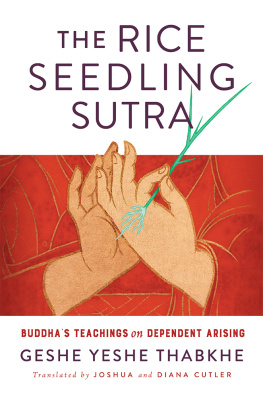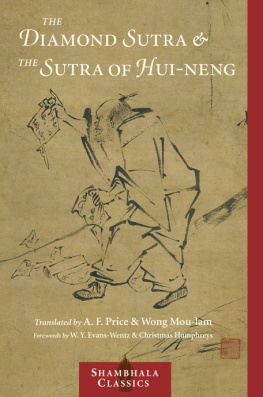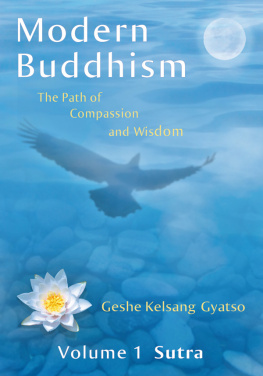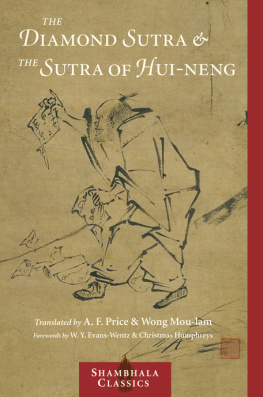We are actively engaged in producing Kindle versions of all of our titles. We would like to contact you about new Kindle books and other similar productions, but Amazon does not allow a way for us to communicate with you as a purchaser of our Kindle books. Therefore we encourage you to register with us by to see the full range of our publications.
Note that this is one of a group of sutras from the third turning of the wheel that we have published. Each sutra has its own important teaching, but the three sutras are special because they belong to a group of sutras that present the innermost meaning of the Buddhas teaching. Each book with these sutras comes with an extensive introduction that clarifies this point. These sutras are crucial reading for anyone who is trying to understand the Other Emptiness teaching, a point which each books introduction also clarifies.
Introduction
This book presents a Great Vehicle stra called The Stra Petitioned by the Householder Uncouth. It is part of a very large collection of Great Vehicle stras named the rya Mahratnaka or Noble Great Stack of Jewels .
1. About the Noble Great Stack of Jewels
The use of the word rya , meaning noble , at the beginning of the name is a convention that was settled on when the Buddhist stras were originally compiled. Placed at the beginning of a sutras name, it shows that the stra is a Great Vehicle stra as opposed to a Lesser Vehicle stra. In this context, rya has sometimes been translated into English as sublime which is not the meaning at all. Sublime in its true sense means that which is so deep that it sub goes below lime the level at which the normal mind can access it. However, rya in this context means that the teachings of the Great Vehicle are superior and special compared to those of the Lesser Vehicle and sit high above them in the same way as the nobility of a country have a special position above the common people.
The Stack of Jewels in the name means that the collection houses a great stack or pile of the Buddhas teachings and that those teachings encompass all of the Three Jewels buddha, dharma, and sagha.
The Great Stack of Jewels is comprised of forty-nine chapters, each one being a separate stra of the Great Vehicle. These forty-nine chapters begin and end with the words:
Chapter such and such of The Noble One, The Great Stack of Jewels dharma enumerations in a hundred thousand chapters.
If there are only forty-nine chapters in The Great Stack of Jewels , why does each chapter begin and end with the statement that it has one hundred thousand chapters of dharma enumerations? It is because each of the forty-nine chapters contains many smaller teachings in which specific classifications of the dharma are enumerated by the Buddha, so that The Great Stack of Jewels contains an enormous numbera hundred thousand, so to speakof these little sections or chapters of teaching in which classifications of dharma are shown or enumerated. You will clearly see this style of presentation in the stra presented in this book.
The stras comprising the Great Stack of Jewels are records of discourses given by the Buddha and the events surrounding them.
The stras always begin with I heard these words at one time to indicate that what follows is a written record of something that was heard in person by one of the Buddhas followers. A key point here is that the followers who later recalled what they had heard all were people with extreme powers of recollection because of which it is possible to believe that the written record is highly accurate.
That is followed by a description of the circumstances in which the discourse was given, with information about where it was given, who was present, and so on. Discourses came about because someone would come before the Buddha and petition him for an opportunity to present his concerns. The description of the circumstances of the discourse would include the details of the petitioner and his petition.
Note the use of the word petition. The atmosphere of the teachings was highly respectful and much honorific language was used. Thus, the stras do not merely say that someone came before the Buddha and immediately blurted out their concerns to him but say that someone come and at first petitioned the Buddha just to have the opportunity to speak. The Buddha would provide an opportunity and then the petitioner would have the chance to present his concerns. The Buddha would then give a discourse in response.
Towards the end of the discourse, someone would ask the Buddha what name or names should be given to the discourse so that it could be retained in future. The person often was nanda, the Buddhas personal attendant who heard every one of his discourses and who committed them all to memory with what is said to be perfect recall. The Buddha would reply with a number of names, one of which would usually indicate the name of the petitioner of the discourse, and the others of which would present one or more main themes of the discourse. Most of the stras in the Great Stack of Jewels , including the stra in this book, were titled with the name of the discourse that showed the petitioner of the discourse.
1.a. Authoritative Statement
Authoritative statement is a verbal statement given to others by someone who is a true authority. Authoritative statement was and still is an important point in the transmission of the Buddhas teaching.






